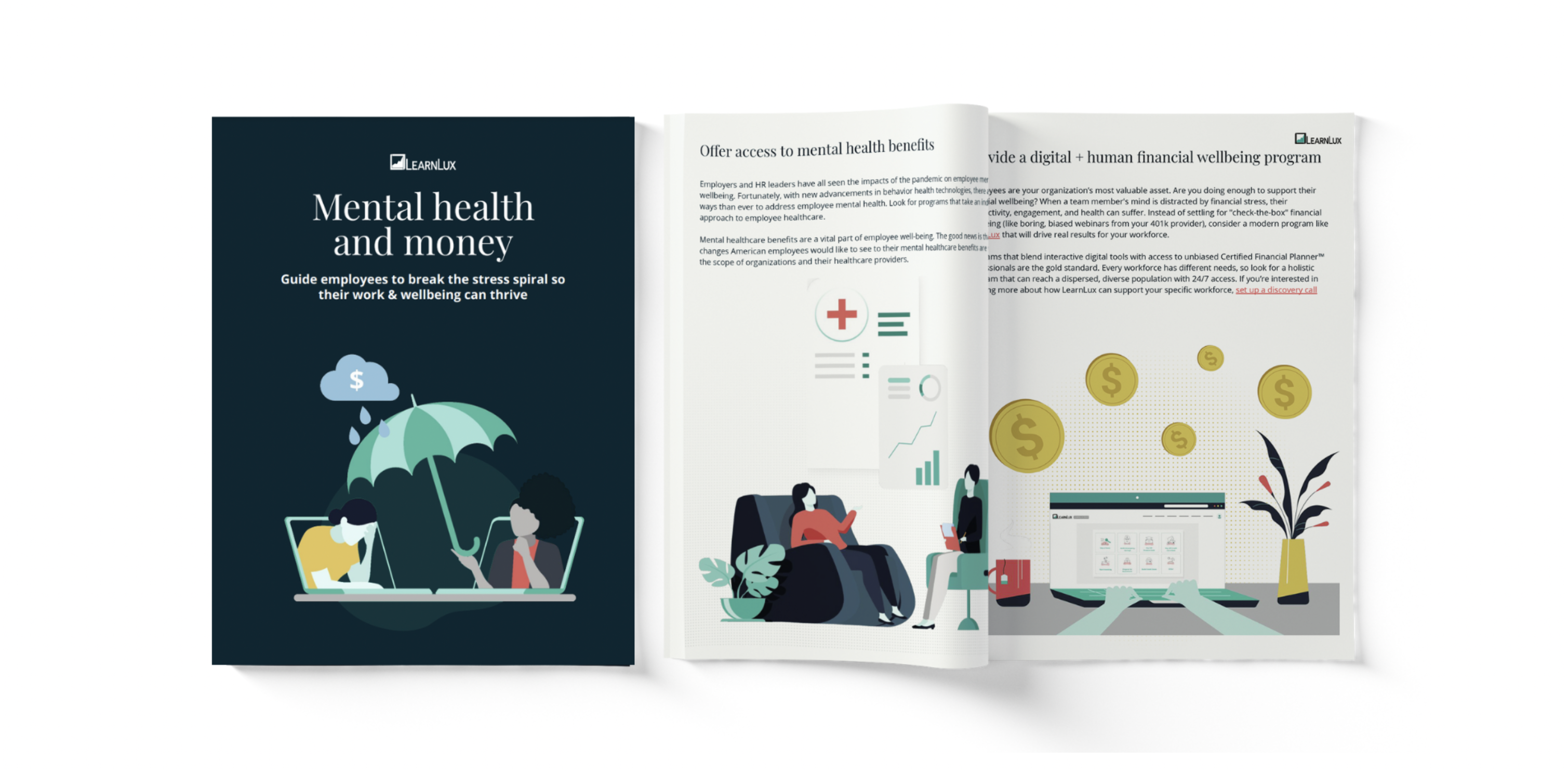May is Mental Health Month in the United States, a time when mental health awareness takes center stage. How can benefits teams promote understanding, reduce stigma, and encourage employees to take care of their mental and emotional wellbeing?
In our world today, many employees are facing unprecedented levels of stress, anxiety, and depression, which can have a significant impact on their productivity and overall wellness.
Read on to learn how HR and benefits teams can play a critical role in supporting employees' health and wellbeing during Mental Health Month and beyond.
Resources and programs to support employee mental health
One of the most effective ways that HR and benefits teams can promote employee mental health is by offering resources and programs that encourage overall wellbeing.
Mental health benefits that provide counseling services and mindfulness are an excellent start to supporting holistic wellbeing. Leading employers are also exploring financial wellbeing resources as one of the 6 pillars of workplace wellbeing to support their holistic strategy.
The connection between mental and financial health
Financial wellbeing is a critical component of overall wellness and is closely tied to mental health. According to a recent study by the American Psychological Association, financial stress is one of the leading causes of stress among adults, with 72% of Americans reporting feeling stressed about money at least once a month.
The same study found that individuals who reported high levels of financial stress were more likely to experience symptoms of depression and anxiety than those who didn't report financial stress.

HR and benefits teams can support mental and financial health by offering a trusted financial wellbeing program to help employees manage their finances. Programs like LearnLux include digital tools, interactive education, and 1:1 guidance from Certified Financial Planner™ professionals.
By offering financial wellbeing as part of a holistic wellbeing benefits package, employees can make informed decisions about their finances and reduce stress.
Consider flexible work arrangements
In addition to financial wellness programs, HR and benefits teams can support employee's mental health by offering flexible work arrangements. Flexible work arrangements, such as remote work and flexible hours, can help employees manage their work-life balance and reduce stress. These arrangements can also support employees who may be dealing with mental health issues, such as anxiety or depression, to manage their symptoms while still being productive at work.
Promote an open communication culture
Another way that HR and benefits teams can support employees' mental health is by promoting a culture of open communication and mental health awareness. Employers can encourage employees to talk openly about their mental health by offering mental health awareness training and promoting mental health resources. HR and benefits teams can also ensure that employees have access to mental health resources — such as counseling services or Employee Resource Groups (ERGs) — and that they feel comfortable using them.
HR professionals should prioritize their own mental wellbeing, too
HR and benefits teams should also support employees' mental health by prioritizing their own mental health. Benefits professionals are often responsible for promoting the wellbeing of others, but it's important to recognize that they too can experience stress and burnout. Employers can support HR and benefits teams by offering mental health resources, promoting work-life balance, reducing financial stress, and encouraging self-care.
---
Mental Health Month is an excellent time for HR and benefits teams to recognize the importance of supporting employees' mental health. Financial wellness is a crucial component of overall wellbeing, and it's closely tied to mental health. By offering financial wellness resources and programs, HR and benefits teams can help employees manage their finances and reduce financial stress all year long.

